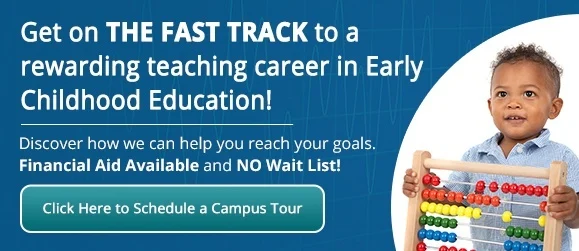Innovative Approaches in Early Childhood Education: Methods and Philosophies for Success
Posted On November 22,2023
Early education should always be designed to set the youngest students up for later success. The two main methods and philosophies for early childhood education are play-based classrooms and academic focused classrooms. Every child is different, and different methods will work differently for each child, but understanding the approaches can help you when you are setting up your classroom.

Play -Based Preschool Approach
“Play-based” is a very common term that many preschools use when describing their programs, but it can mean a variety of different things. At its core, play-based programs are open-ended and child led. Imaginative play, such as dress-up, playing house or store, building with blocks, and art activities that focus on the process (such as finger painting) rather than the final product are all common in play-based programs. Play is voluntary with no defined purpose and no end goal. The hallmarks of play-based learning are activities that are:
-
Chosen by the child
Teachers can suggest or invite students to play, but the child will determine if and how they participate. In play-based learning, the teacher functions as the facilitator, not the instructor.
-
Unstructured
The tools are provided, but the child has time to explore and discover during play, not follow a specified process. The room may be broken up into certain stations or areas (such as blocks, dramatic play, art stations, and reading nooks), but within the area children are free to play as they choose.
-
Enjoyable
While preschool aged children may become frustrated, even when doing a fun activity, the overall mood should be one of fun, not of work. The activities should not be focused on task completion.
-
Open-Ended
There is no “end goal” in play-based curriculum. Simply gamifying an academic concept, such as a song to teach counting or letters, is not play-based learning. While participating in the activity, the “play” is the ultimate goal.

Academic Preschool Approach
Academic preschools are marketed and designed to prepare children for kindergarten. Activities and games are used for specific concepts such as letters, colors, numbers, and shapes. Academic programs can still be fun, but in an academic program, the preschool teacher is leading the class directly to learn a defined concept. The focus is on early academic skills such as shape recognition, letter recognition, beginning sight words, early writing, and early numeracy concepts. Books and activities are designed to teach a concept such as science (how a plant grows). In academic programs, children will typically use worksheets and practice writing, coloring, and matching. These programs are often very structured with a good deal of teacher preparation required.
Which Philosophy is More Successful for Young Children?
Both play-based and academic learning have their pros and cons. While it may not look like students in play-based programs are learning anything, they are in fact developing academic as well as social skills which provide an excellent foundation for success in kindergarten. Children who get to choose their own activities and processes are able to enjoy the learning process and will have excellent attitudes toward education as they move through the early elementary years.
Preschool students with strong social skills are proven to be successful in academics later in their educational careers. In addition, children in play-based programs are better equipped for self-regulation, cognitive flexibility, and working memory. Impulse control and a passion for learning will help them later. However, without being directly exposed to academic concepts, students may not score as high on literacy and numeracy diagnostic tests in kindergarten.
In academic programs, students are directly taught early literacy and numeracy skills and often are able to pick them up very quickly. When they enter kindergarten, they are better prepared to read, write, and do simple math tasks. However, these increased skills will level out by first grade. Students who are in academic based preschool programs struggle to be self-driven and aren’t interested in their own learning, but rather focus more on being “right” or “wrong”, and can have more behavior programs than those in play-based programs. Curiosity and creativity are far less present in students who were in teacher-led preschool programs.
Can a Combination Approach Work?
Both philosophies have positives and drawbacks. Although the research supports play-based programs as the best way to begin a child’s educational journey, many parents are drawn toward the measurable achievements they can see in an academic preschool program. Parents want to make sure that their children are prepared for kindergarten, and when they see that academic programs are focusing on kindergarten skills, they may think that these programs will allow their child to “get ahead”.
While the research does show that students in play-based programs are often better set-up for long term educational success with the social skills and “ready to learn” attitudes that elementary teachers want, a balanced approach that combines the best of both philosophies can make for a very successful preschool experience. In a combination approach, students will have a routine with room for unstructured play, teacher-led learning balanced with individual discovery, and a rich environment for associating learning with joy.
When planning your preschool curriculum, it’s important to think about who your students are and what you are hoping to teach them. Children do learn through play, and creating a classroom of children who love learning is the most important way to set them up for future success in school. If you’ve been thinking about becoming a teacher but don’t know where to start, contact Athena Career Academy. We offer an early childhood education degree through a comprehensive program with flexible class schedules to fit it well with your busy life.
